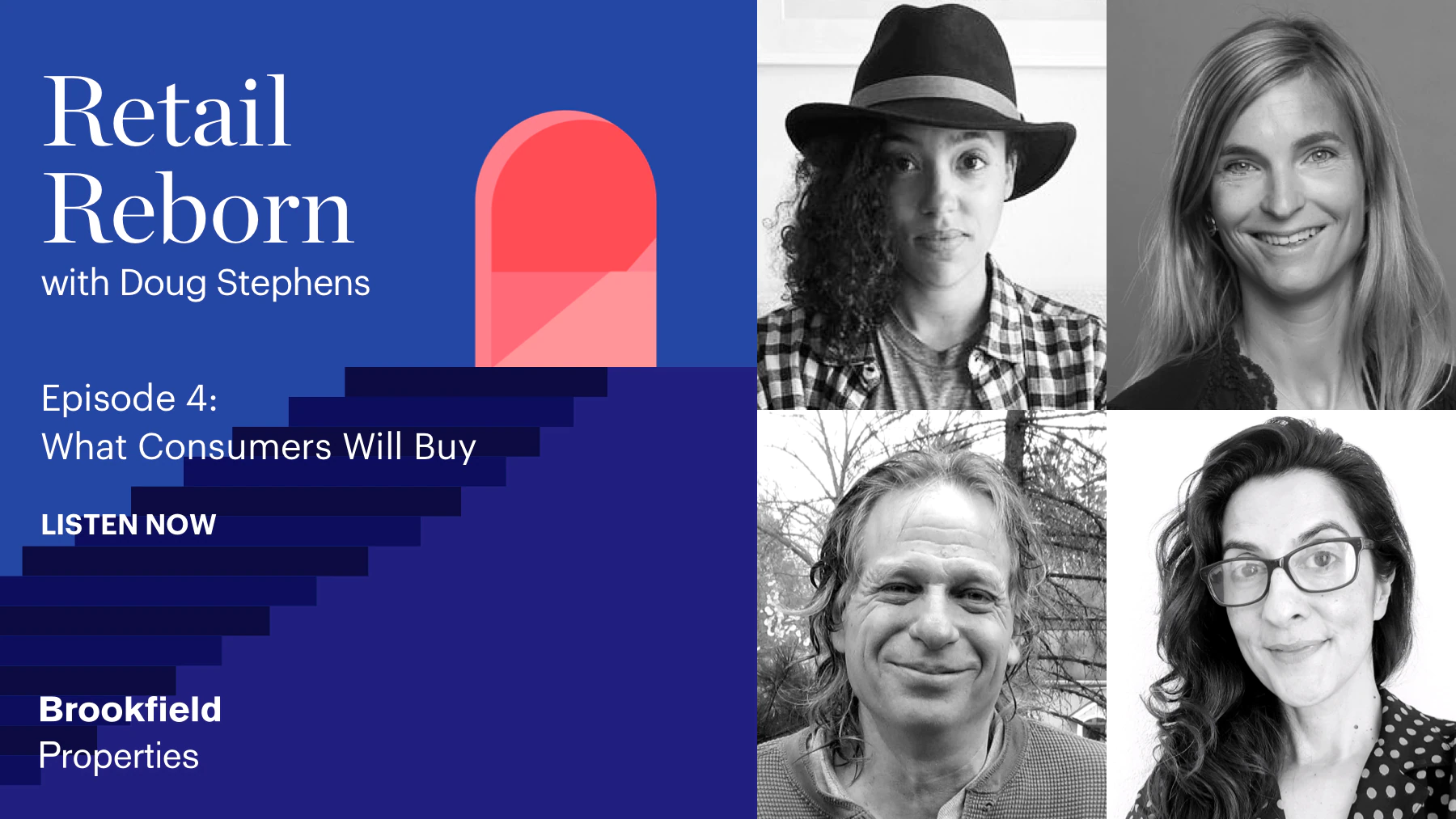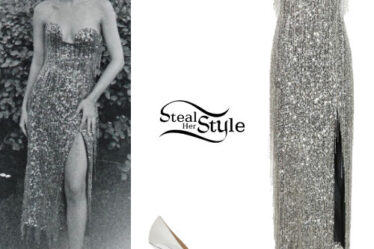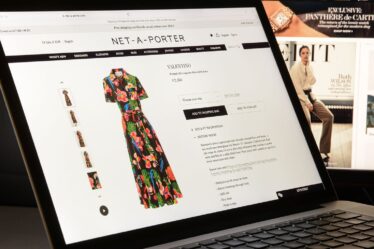
Follow the series to ensure you never miss an episode.
In the second season of Retail Reborn, presented by Brookfield Properties, we have investigated the consumer of tomorrow and the new fundamentals that will shape the lives and behaviours of both the next-generation consumer and retail landscape.
In this final episode, we explore the future consumer’s preferences and needs, and how this is shaping their purchasing decisions, from the V-shaped recovery of the personal luxury goods industry in 2021 to the renewed verve in, and take on, the experiential economy as the world reopened post-global lockdowns.
“It’s worthwhile to question the extent to which some of the changes we are witnessing are truly indicative of longer-term shifts in behaviour, or an almost primally motivated response to the profound medical threat of the pandemic, not to mention the social, political and economic unrest that it has unleashed,” says podcast host and retail futurist Doug Stephens.
The conversation examines human behaviour and the effects the pandemic might have played in the mindsets of young consumers, before discussing evolving attitudes towards ownership, the rise of responsible goods and sustainability in a luxury fashion house and the resale market — an industry expected to nearly triple by 2025.
Finally, we explore virtual technology’s presence in consumption preferences, from the evolution of sampling processes to the increased interest in digital products. Indeed, the metaverse is projected to provide a $50 billion revenue opportunity for luxury by 2030, according to Morgan Stanley, and the first Metaverse Virtual Fashion Week took place last month.
To break down what consumers will buy, four global experts share their insights and expertise with host Doug Stephens.
Sheldon Solomon, a returning guest from season one of Retail Reborn, is a social psychologist and professor of psychology at Skidmore University. Solomon developed the terror management theory, along with Jeff Greenberg and Tom Pyszczynski. He is also co-author of In the Wake of 9/11: The Psychology of Terror, and The Worm at the Core: On the Role of Death in Life.
“Millennials have been kicked in the psychological groin in extraordinary ways. And moreover, they’re in an excruciating position, because they’re the first generation who didn’t do better than their parents, but nobody told their parents, so they were squeezed in a world of diminishing opportunity and rising expectations.”
Justine Porterie is the global head of sustainability at Depop, where she leads the resale platform’s efforts in helping to make fashion more circular. Having started her career in consulting, Porterie specialises in responsible investment, ESG impact and sustainability strategy.
“Buying second-hand or making-second hand gifts […] was a total taboo. Whereas now, especially with Depop and the young generation, […] it has a powerful aura to it and social credit that comes with it because it means uniqueness and because it means you go out of your way to express yourself.”
Michaela Larosse is head of content and strategy at digital fashion house, The Fabricant. Larosse has worked with companies such as Nike, the BBC and Visa, and is dedicated to advancing the transition to a circular economy and advocating on behalf of brands and initiatives that actively contribute to a more sustainable future.
“It’s a way of iterating your identity in virtual spaces. […] Going to a digital concert in a virtual world, maybe that’s where you let your digital fashion imagination run wild and you wear a garment that’s physically impossible in the real world. The creative palette with digital fashion is as big as your imagination because there are no physical boundaries to creation.”
Aude Vergne is chief sustainability officer at luxury fashion brand Chloé, which recently acquired B-Corp status. Vergne is also a member of the strategic committee and licences director at the brand. Prior to her current role, Vergne worked for 15 years in the beauty industry holding several management positions for Unilever and Shiseido. She worked on Jean Paul Gaultier and Elie Saab lines, and launched Alaïa into perfume.
“If you look at the fashion industry overall, I think the first question is for me about changing habits. You can buy one item, which is a slightly higher price and lower impact attributes. Instead of 10, you can buy second hand, you can swap. So today, the younger generation has much more options to move to a circular model and to buy less.”
Listen to all episodes of Retail Reborn Season 2 on the BoF Podcast, to discover actionable insights into the opportunities and challenges the consumer of tomorrow will bring.
Brookfield Properties is building marketplaces of the future that meet the needs of the modern shopper. Discover more.



